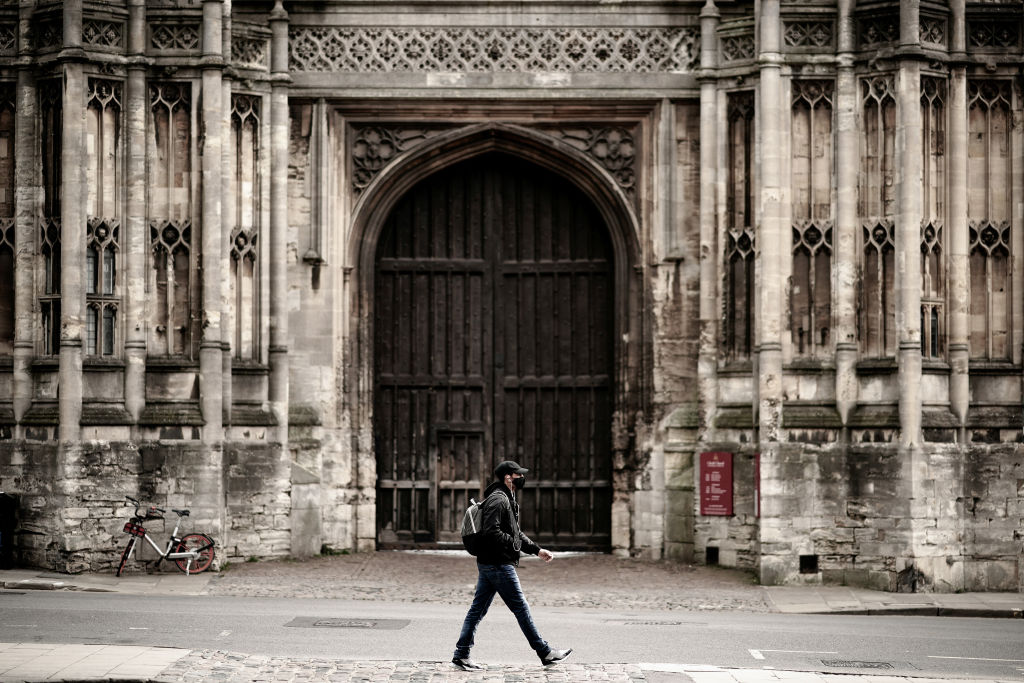University is supposed to be among the most enjoyable and formative periods of a person’s life. Spare a thought then for the class of Covid-19. This week’s lockdown announcement again dealt yet another blow to an already disastrous year for university students. Despite having paid the usual tuition fees – and forking out thousands of pounds for pre-paid accommodation – the majority are now stuck at home, learning exclusively through Zoom.
Universities cannot be blamed for the seemingly unrelenting succession of lockdowns caused by the pandemic. But that doesn’t alter the fact that we students have been compelled to pay £9,250 for a programme of often poorly-organised video lectures, alongside limited access to books and libraries. And this all relies on a stable internet connection, a luxury which some students can neither access nor afford.
Before the start of the academic year, Russell Group universities including York, Cardiff and Queen’s University Belfast promised a ‘hybrid model’ of teaching, with ‘online delivery complementing face-to-face teaching.’ At Oxford, we were told that face-to-face tutorials would be complemented by ‘high quality remote learning.’ Yet, as coronavirus cases surged in October, these warm words were promptly abandoned, without so much as an apology from university bosses.
This is hardly fair. Why? Because many students decided whether or not they would defer, suspend, or simply withdraw from their studies based on these assurances. In making such promises, universities have displayed a despicable lack of empathy to students who are, in effect, fee-paying customers. Would those heading off to university have done so, had they known that their student experience would entail being stuck in their family home, glued to a laptop? It’s unlikely.
With the assurance of face-to-face teaching also came an implicit promise of face-to-face socialising. Incoming freshers, many of whom were caught up in the ‘mutant algorithm’ fiasco of last summer’s A-Level results, were excited for what they thought would be a convivial freshers’ week. The reality was rather different; thousands of students across the country were forced to self-isolate in grey accommodation blocks, with meagre food parcels handed through their doors.
As a student at one of the grandest Oxford colleges, I was one of the lucky ones. Living in a room with gothic windows spanning from floor to ceiling, framing Christ Church Meadow, it seemed unreasonable to complain about my situation. But pretty views aren’t everything. As a consequence of their vulnerability to Covid-19, a number of students in my ‘household’ had made the decision not to return to Oxford, leaving my corner of college eerily quiet. Despite doing my best to stay upbeat, a grim sense of isolation quickly set in; by the sixth week of term, the lack of daily social interaction left me with severe insomnia.
I’m not alone. In December, an ONS survey revealed that 57 per cent of students reported worsening mental health during the autumn term. The only shock is that this number wasn’t higher. Yet students, as ever, receive little sympathy: when the majority of my contemporaries were patiently isolating in their rooms, the class of covid have nonetheless been derided as super-spreaders, responsible for a spike in cases during the autumn.
To make matters worse, in his most recent lockdown announcement, Boris Johnson refused to even mention the issue of whether universities would remain open, choosing to focus solely on schools. With a number of students due to return to their halls the next day, many were left lingering in an anxious state of uncertainty, as clear government guidelines only appeared much later in the evening.
For students, this was the last straw. As of Thursday, over 260,000 students had backed a petition calling for universities to cut tuition fees. After months of poor-quality education, self-isolation and mental health struggles, students deserve more respect. It’s only right they get some of their money back.






Comments